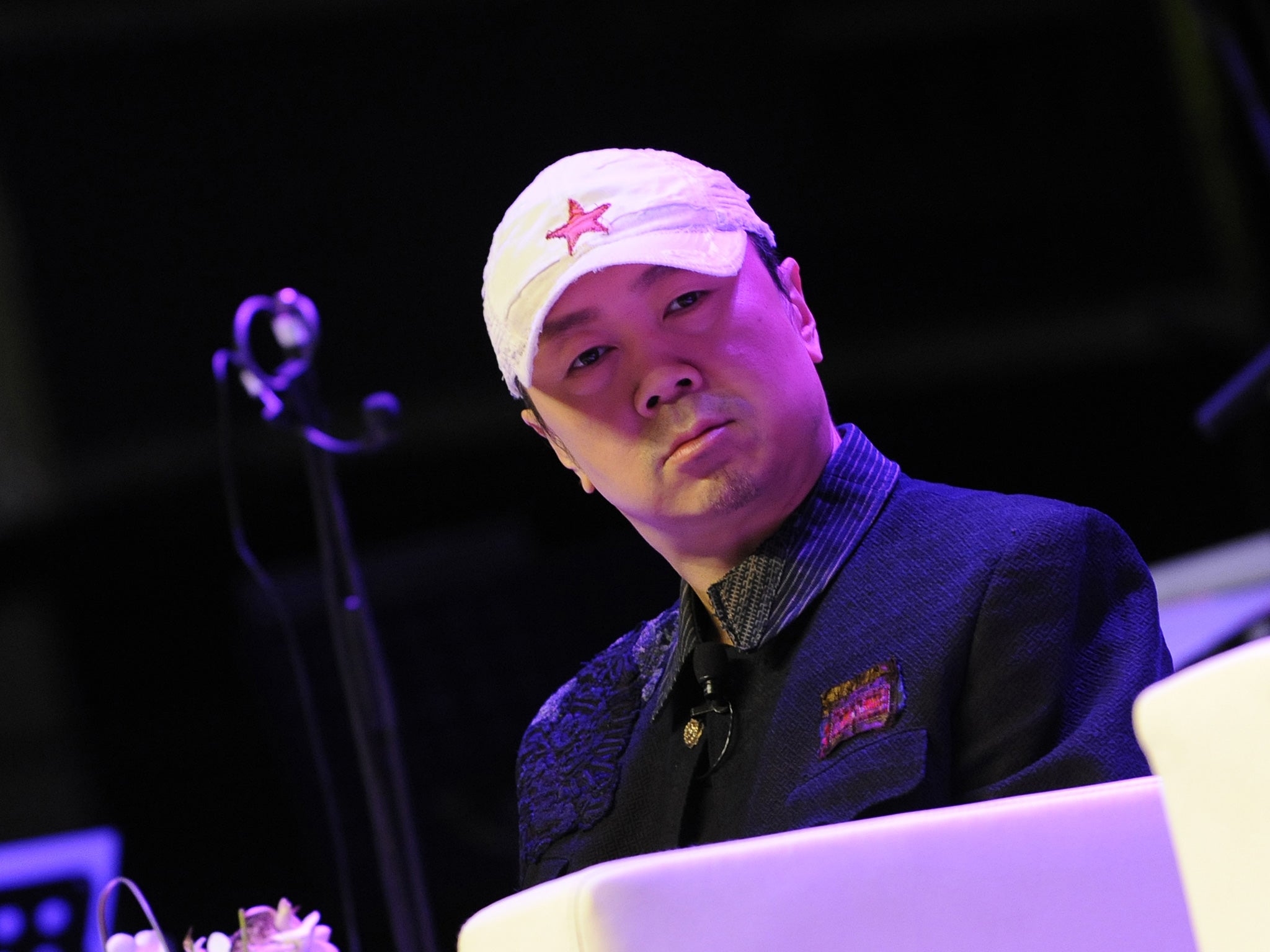China’s rock rebel Cui Jian gets the Party startled
The artist whose song became a Tiananmen Square anthem falls foul of state sensitivities

Your support helps us to tell the story
From reproductive rights to climate change to Big Tech, The Independent is on the ground when the story is developing. Whether it's investigating the financials of Elon Musk's pro-Trump PAC or producing our latest documentary, 'The A Word', which shines a light on the American women fighting for reproductive rights, we know how important it is to parse out the facts from the messaging.
At such a critical moment in US history, we need reporters on the ground. Your donation allows us to keep sending journalists to speak to both sides of the story.
The Independent is trusted by Americans across the entire political spectrum. And unlike many other quality news outlets, we choose not to lock Americans out of our reporting and analysis with paywalls. We believe quality journalism should be available to everyone, paid for by those who can afford it.
Your support makes all the difference.He is known as the godfather of Chinese rock’n’roll, who single-handedly started the underground pop scene in 1980s Beijing.
But Cui Jian won’t be performing at China’s premier variety show later this month.
The 52-year-old guitarist, who provided the unofficial anthem for the Tiananmen Square protesters in 1989, had been invited to perform at the state broadcaster’s show to celebrate the Lunar New Year on 30 January. However, Cui decided to quit the China Central Television (CCTV) gala after organisers told him he could not perform his rebellious anthem, his management said.
Cui has fallen in and out of favour several times with China’s government since he first performed “Nothing to my Name” at Tiananmen Square during the democracy protests more than two decades ago. But in recent years he had been welcomed backed into the fold. So much so that he was allowed to headline at the Beijing Stadium in 2005 and, in 2006, he performed in Shanghai with the Rolling Stones, singing “Wild Horses” alongside frontman Mick Jagger.
His hopes of performing with the Stones had been previously dashed when, in 2003, he was booked to open for the ageing rockers’ Beijing leg of their Forty Licks tour, but the gig was cancelled after the Sars outbreak.
“It is not only our regret, but also the gala’s,” his manager You You said of the decision to quit the show yesterday. “Cui Jian has his fans all over the world, so his stage is far beyond the CCTV’s gala.”
Often referred to as China’s Bruce Springsteen – the Boss of Beijing – Cui’s star rose in the late 1980s, most famously with “Nothing to my Name”, which voiced the hopes and anxieties of a generation of Chinese entering adulthood after the death of Mao Zedong.
The 30 January gala had been seen as the final stage of Cui’s political rehabilitation. However, Steven Schwankert, of True Run Media in Beijing, which publishes a guide to nightlife and entertainment in the Chinese capital, said he “would have been surprised if he played”.
In 1984, Cui was a classical trumpet player with the Beijing Philharmonic Orchestra but, inspired by bootleg tapes of Simon and Garfunkel and John Denver sourced from Hong Kong or friends at Western embassies, he formed a band and kick-started the Chinese rock scene.
He recorded “Nothing to my Name” in 1986 but his growing popularity with Beijing’s youth cost him his government job.
He started performing regularly during the brief wave of openness under Communist Party leader Zhao Ziyang, who was ousted in 1989. At that time, Cui could tell the party’s English-language paper, the China Daily: “Rock’n’roll is a special kind of music. It’s anti-tradition, anti-culture. It’s ideology of a modern man.” His words angered party hard-liners, as did his rock renditions of revolutionary songs of the 1930s.
Sporting a headband, he played for Tiananmen Square protesters in 1989, days before the government crackdown that left hundreds dead. His song went on to become the movement’s unofficial anthem.
In recent years, Cui’s return to the limelight saw him visit Taiwan, open for Deep Purple and play with American hip-hop group Public Enemy. But appearances on Chinese national television are still rare.
In a 2005 interview with The Independent, he said: “In China now, it is good weather, but it’s not a good climate. They’ll let you make more money, they’ll give you good food and let you have all the things you have in the West, while still controlling things. They don’t believe Western democracy will enable China to get better smoothly. I understand why foreigners don’t trust that and I’d agree with them.”
Join our commenting forum
Join thought-provoking conversations, follow other Independent readers and see their replies
Comments